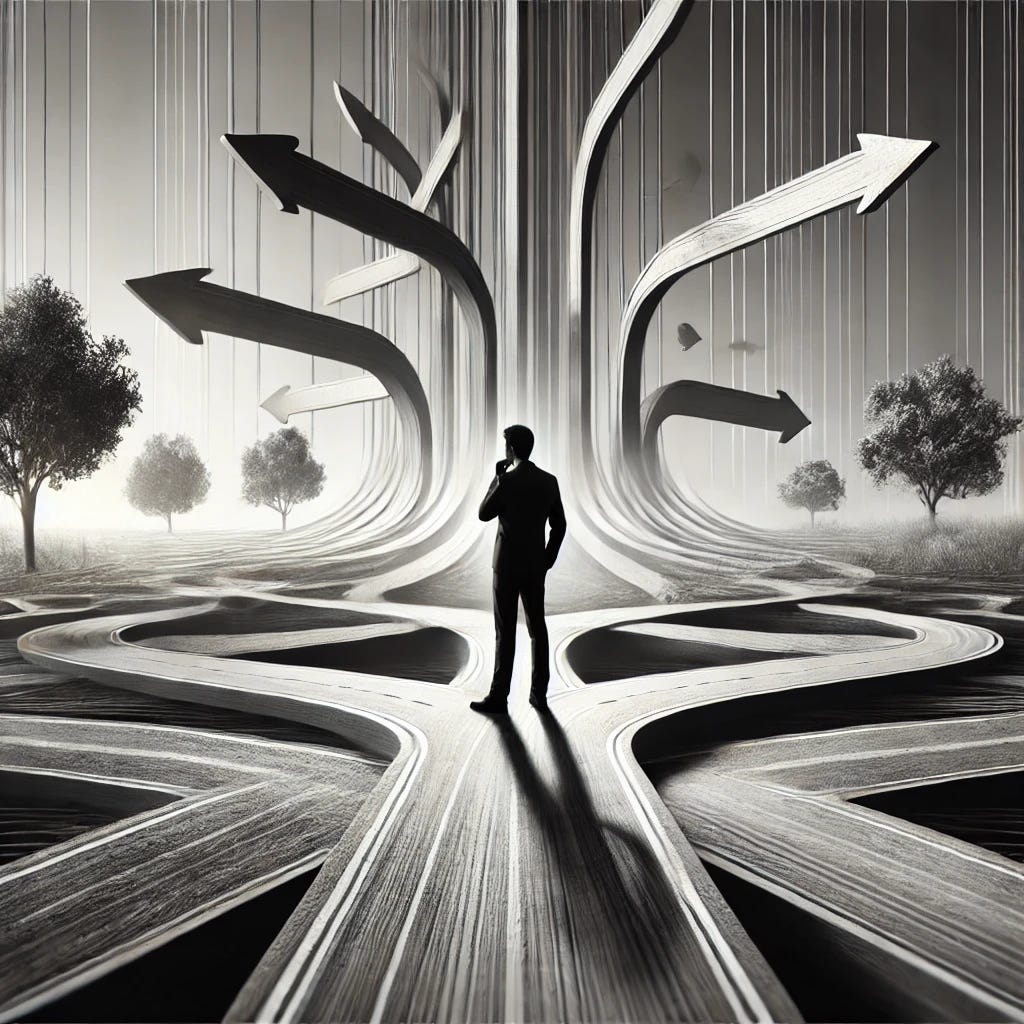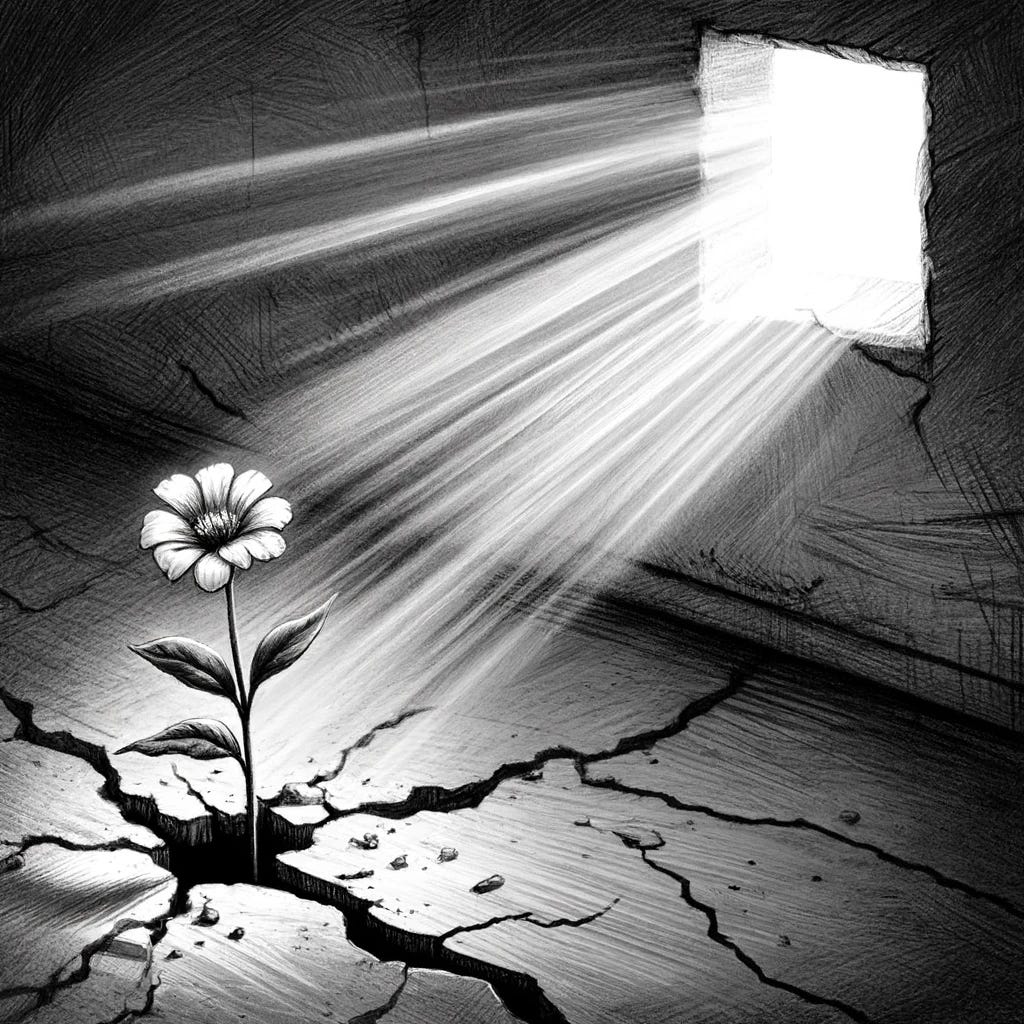How We're Duping Ourselves into an Unfulfilling Life
Ignoring the SPIRE Wellbeing Model to our Detriment
While there are many views on what it means to be well as humans, I thought I'd highlight and very briefly introduce the SPIRE Wellbeing Model created by Dr. Tal Ben-Shahar, an expert on positive psychology and Dr. Maria Sirois and Megan McDonough, cofounders of the Wholebeing Institute.
The Wholebeing Institute's definition of wellbeing and what it means to be a human is worth highlighting verbatim: "SPIRE well-being considers the whole person—it encompasses spiritual, physical, intellectual, relational, and emotional well-being. By taking the whole into account, the greatest well-being can be realized. We call that wholebeing, and we use that term as our definition of happiness."
They define the perspectives of SPIRE as follows:
Some of my quick reflections and thoughts on these perspectives:
Spiritual:
I like that Spiritual is the first perspective in the SPIRE model. Studies have shown the strong correlation between purpose and meaning and physical health outcomes, health behaviors, and psychosocial outcomes. 1 It is this perspective that feels the least understood and most under pressure by the way we live our lives - more on that in the coming weeks.
Physical:
Opposite of the Spiritual perspective, society has a long history of studying and attempting to improve the Physical perspective. This is likely due to its ease of being measured and therefore managed. As a species enamored with empiricism, we like to focus on things we can seemingly comprehend. Of course for many of us, our lives are becoming less physical and more digital which has adverse affects not only on the Physical perspective but on many of the other perspectives as well. Despite being the perspective that we may have the most awareness and understanding of, the changes to the way we live our lives necessitates we continue to focus on our physical wellbeing.
Intellectual:
Engaging in deep learning feels increasingly rare in our distracted world and yet we know that deep and not superficial learning is key to our wellbeing. The life of the intellectual - which from a normative perspective I'd argue that we are all made to be intellectual - is becoming harder for all of us. Not enough time, often over-scheduled, and the cacophony of noise from distractions crowds out the time we all need to slow down to contemplate.
Relational:
In the era of the loneliness epidemic, this perspective alongside the Spiritual feels very much under pressure. The paradox of our times is that despite being more "connected" than ever before via technology and social media, people are increasingly lonely and drowning in superficial relationships. Given we are made to be in community and in real relationships with others, this perspective is something we all need to give much more attention and priority to.
Emotional:
"Reaching towards resiliency" is an interesting part of the definition of this perspective. I will likely write more on the topic of resiliency as compared to reaching towards the concept of anti-fragility popularized by Nassim Taleb as the goal we should be reaching for.
For contrast, I created what I think is actually how we as individuals and as a society live in terms of our beliefs on wellbeing encapsulated in the statement
We are Individuals living in an Empirical world,
defined by our Results which provide us increased Possessions and Status
resulting in a superficial, distracted, and ultimately unfulfilling life."
Status:
"We are our titles".
How many of us introduce ourselves by saying our first name and then our title? In the DC metropolitan area, this seems to be the only way you are supposed to introduce yourself. Or in this new era of being superficially known by thousands in the form of followers but really known by a few or none, our status ties our actual identity and intrinsic worth to a transitory role and status.
This inevitably leads to an identity crises of sorts and leaves us on the unsustainable hamster wheel of performing for love.
Possessions:
"We are what we have".
Consumption that is satisfied in the material world seems to be the narrative that we are all fed from our birth. Our shopping carts, houses, and garages are so full that many of us have self-storage units. And yet, the sad truth is many of us are empty inside.
We try to feed our malnourished soul and spirit by buying more things. Our possessions only seem to possess us and the material fails to satisfy the immaterial.
Individual:
"We are at the center of our universe".
It's all about us as individuals. We are at the center of it all and life is about us and for us. We ignore the need for meaningful relationships and community at our detriment and the reality of our human condition. Individuals focused on themselves, living for themselves, and relying on themselves inevitably live isolated, superficial lives devoid of purpose and meaning. We are meant to serve and to contribute to others.
Results:
"We are what we produce".
Our wellbeing and value is tied to our ability to produce results. For our companies and for ourselves. This utilitarian approach attempts to transform us from human beings into machines.
But human beings cant live fully when optimization, efficiency, and productivity are the guiding truths of life. Machines can be measured and therefore managed under such conditions. Human beings will only barely survive. As a tripartite being comprised of a body, soul, and spirit, we are more than mere atoms bouncing around responding as automatons to our environment.
Empirical:
"We are what we can measure and therefore manage".
As humans we have a deep desire to understand our world and ourselves. This good desire has led us down a path to worship at the altar of reason and only what we can comprehend through observation and measurement. It sucks the joy, beauty, and meaning out of much of life. These are things as human beings we want and truly need. It degrades the human experience and what it means to be a human being to only what can be measured and therefore managed. As I will write in the future this focus on measuring and managing in search for control often leads to manipulation and on a path to deifying ourselves. Suffice it to say, there is much more to life than the empirical.
Questions to contemplate:
How do I ensure that I steward wellbeing akin to what is admonished via the Wholebeing Spire method? Where am I strong and where I can improve?
How much of the lies do I hold on to around the statement of “We are Individuals living in an Empirical world, defined by our Results which provide us increased Possessions and Status resulting in a superficial, distracted, and ultimately unfulfilling life”?






